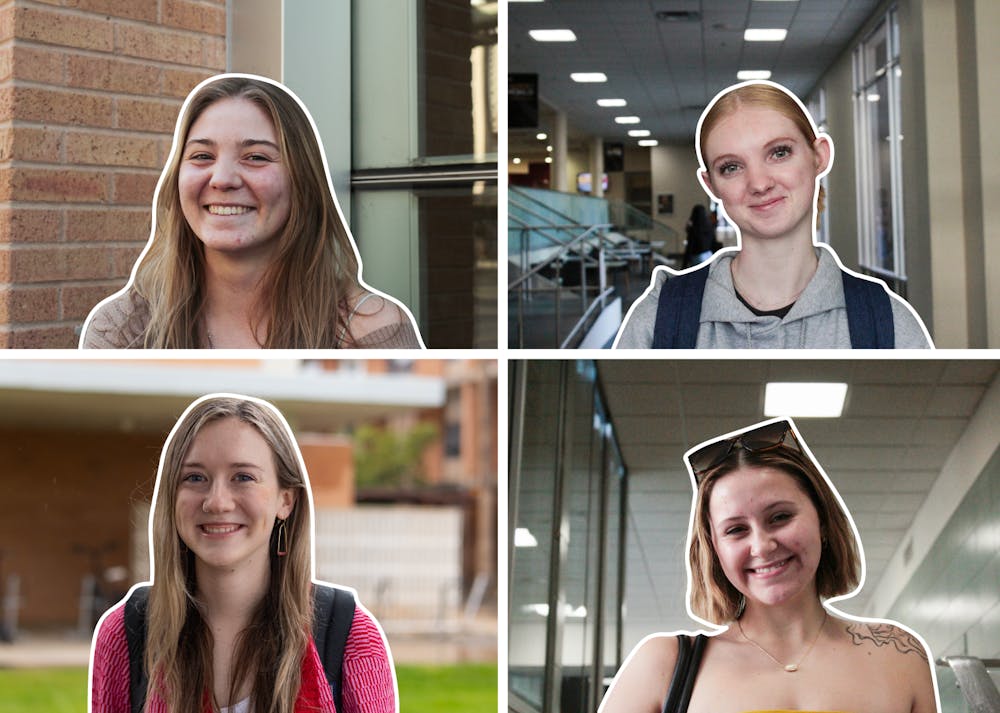The women at ASU have spoken — access to birth control is crucial for future careers, a deeply personal choice and nobody’s business whatsoever.
Kara Seelig, a junior studying biomedical science, said she is feeling "so much tension" because of Arizona’s battleground state status and that access to birth control is something that she thinks about often.
"Just recently, in these past couple of years, I’ve voted," Seelig said. "I am genuinely worried for women’s rights to their bodies."
Charli Hannay, a freshman studying speech and hearing sciences, said that men shouldn’t have a say in legislation affecting women’s bodies.
"It should be women and younger women," Hannay said. "All the recent laws that have tried to pass are more against women than they are for women."
Access to abortions in Arizona has greatly decreased. A 2022 law banned all abortions on pregnancies over 15 weeks unless the pregnant person is in immediate danger.
Hannay has been on birth control since high school. She said that taking birth control is a very personal decision and that access is critical.
"It is every girl's decision if they want to be on it or not," Hannay said. "I don't think college should define it for anyone, but during this time, I guess it is important to at least have the option."
Chesney Miesen, a freshman studying marketing and Spanish, has also been on birth control since high school. She said that contraceptives are "the safe alternative, especially in college life."
A 2019 article published by the Centers for Disease Control and Prevention found that among heterosexual couples, condoms were the most common pregnancy prevention method used (43.9%).
They were followed by birth control pills (23.3%), the withdrawal method (10.1%), IUD or implant (4.8%), and the shot, patch or ring (3.3%).
For other students, it is not just about safe sex but also protecting their envisioned futures.
Seelig said that she takes birth control to protect her aspiring career.
"That’s my biggest thing right now," Seelig said. "There's no way that I would be able to take care of a kid right now, let alone accomplish the goals that I have in life having a kid."
She also said that she feels fortunate that obtaining birth control is easy for her, while other students have to pursue alternate routes.
"I’m privileged to be on my parents' insurance; a lot of students don’t have that resource," Seelig said. "Especially students from other countries, they need to have access too."
The University does provide resources for students looking for birth control options. ASU Health Services’ Women’s Health Department provides students access to oral contraceptive pills, the patch, the ring, the shot, implant and IUD insertion and diaphragm fitting.
They also provide sexually transmitted infection screening, evaluations and treatment.
Morgan Cywinski, a senior studying social work, said being candid about birth control could help her peers.
"We could talk more openly about it," Cywinski said. "Then people would have access to it in places that maybe they're not aware of its existence."
Devils in the Bedroom, a student organization providing sexual health and wellness education to ASU students, is one group recognized for its direct and comprehensive approach to education and resources.
At tabling events, they have given out condoms, lube and emergency contraception to students.
Seelig said that offering contraceptives to students for free is valuable on campus.
"It’s a great resource for students, personally," Smith said. "It is just silly to expect abstinence from people."
Edited by Katrina Michalak, Walker Smith and Sadie Buggle.
Reach the reporter at efoxmill@asu.edu and follow @emilyfoxmillion on X.
Like The State Press on Facebook and follow @statepress on X.




